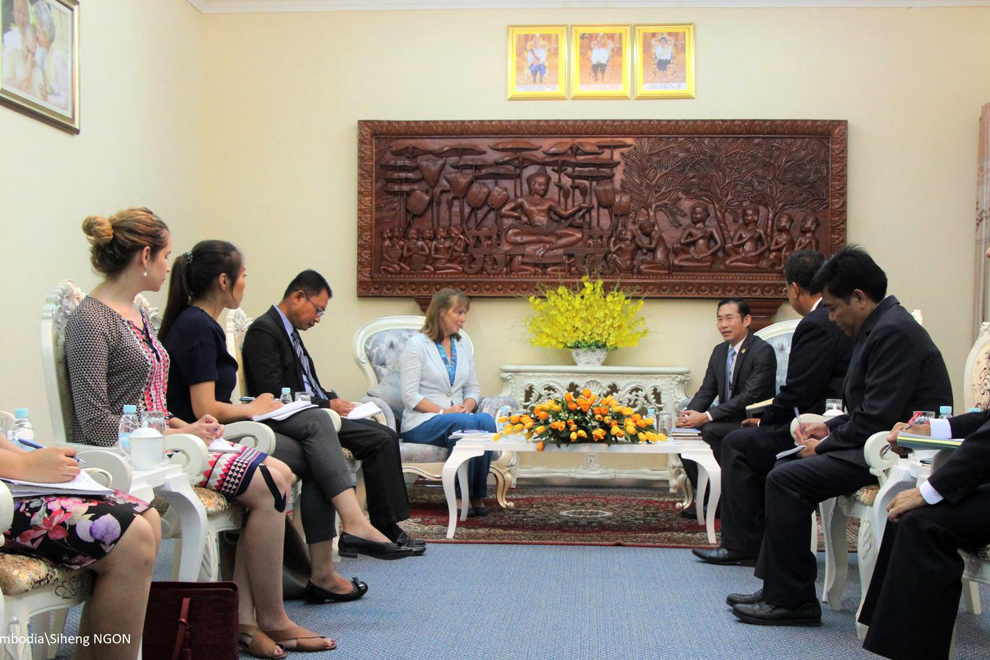
Rhona Smith (third left) meets with deputy Anti-Corruption Unit president Kheang Seng (third right) to learn about the agency’s methods and progress. UNHRC
Rhona Smith, the UN Human Rights Council’s (UNHRC) Special Rapporteur for Cambodia, met with a senior Anti-Corruption Unit (ACU) official to learn about the agency’s methods and progress, and urged the government to step up its fight against corruption.
In her meeting with ACU vice-president Kheang Seng, Smith was also updated on Cambodia’s progress in meeting the UN’s Sustainable Development Goals (SDG) and implementing the Rectangular Strategy for Growth, Employment, Equity and Efficiency.
“The government explained to us what it is doing to combat corruption in Cambodia so it can promote the Rectangular Strategy and achieve the Sustainable Development Goals."
“The ACU has many mechanisms to access information on corruption and then to investigate and report,” she told The Post after the meeting.
Seng said Smith wanted to find out about the ACU’s role and how it enforces the law. He said he briefed her about the task of fighting corruption now and in the past.
He said some reports that were due to be sent to the UN regarding Item 16 had been delayed and Smith asked the ACU to rectify this.
“Apart from that, there was no problem. She acknowledged that our work takes time. It needs commitment in all forms to fight corruption in Cambodia in an effective and successful way,” he said.
With regard to cooperation with the UN in the fight against corruption, Seng said within Cambodia’s legal framework, the ACU was implementing the first and second rounds of the UN anti-corruption conventions.
He said Smith urged the government to continue its fight against corruption in a transparent manner and to work resolutely to achieve its goals.
Affiliated Network for Social Accountability executive director San Chey said the meeting between the ACU and the UN human rights monitor was of great importance to the national strategic development plan.
But he said Smith wanted to see real results from the fight against corruption – ones that significantly contributed to reducing the abuse of power.
“If a country has a robust strategy to combat corruption, it can improve the efficiency of governance and respect for human rights and democracy,” Chey said.











